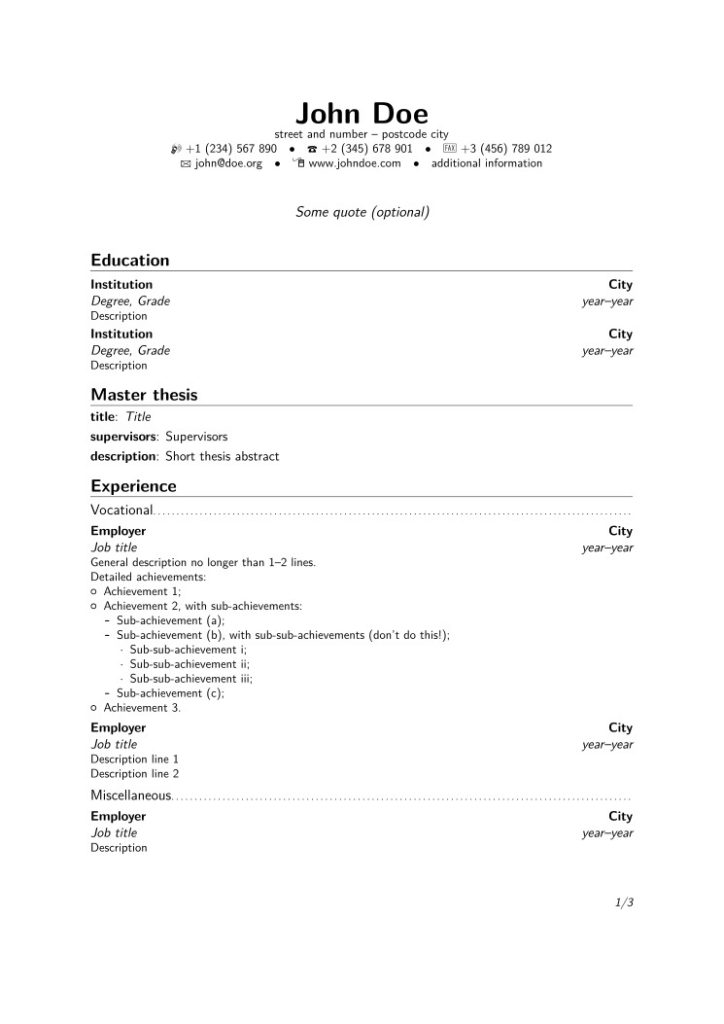Employment means having a job or the state of being employed. There are in simple terms two basic ways in which money can be made. You can either can work for yourself or work for someone else and be paid for it. If you earn your income through your own business, then you are said to be a self-employed person. When you earn your income by offering their services to others, you are an employed.
If someone decides to employ a person, they have to pay them a salary or a wage. The person who hires others is called the employer. The person receiving payment for your work is called the employee. Employers can be an individual, a business, a government or any other entity.
If you do not have a job or are not employed, we describe you as being jobless or unemployed.
Reason for Employment
- To earn money. Money can be spent on purchasing food , paying rent, to go out with friends and families, to save for the future and also helps in feeling secure financially. In this world, it is hard to provide for ourselves and our families if we were to not have a source of employment.
- Personal Fulfillment: It provides you with an opportunity to use your skills and talents. This is fulfilling especially if you are doing something you love, enjoy or consider worthwhile.
- Social Interaction: You develop friendly relationships with their colleagues, supervisors, and clients at the workplace. Such relations give a person the sense of belonging to a certain group. Through group activities like cooperative work, people develop important social skills. These skills are applicable in other sectors like teamwork or partnership.
- Professional Development: It is the process by which one builds his or her expertise and proficiency. It resulting from training sessions, workshops, on-the-job experience, or education. This ongoing learning is relevant to what you are doing now and helps your career to advance.
- Community: The workplace is like a community. Human beings like to be part of, as well as to take part in, communities.
How do you become an employee?
Through the process of application and interviews, the employer chooses and offers the job to the employee. The employee selects the applicant who is most appropriate for the job position available. Once you have been chosen, that means that you are employable. The process of application and interviews determines your employability.
What do employees do?
An employee trades their skills, expertise, experience, and contribution for payment from an employer. In simpler terms, an employee completes certain duties for a company in return for a consistent pay.
Each worker is assigned a particular task that is usually defined in a job description. Many of them have a specialization in an area of operation or specialization such as marketing or human resources. Each worker has a superior, typically a manager or supervisor, who they report to and receive instructions from.
Where do employees work?
Traditionally, an employee performs work in the company’s premises and specifically in the office. The employer assigns each of its employees a workplace and all those things an employee needs to perform the job efficiently, for example a computer, a telephone, table, and more.
Employees may be exposed to various workplace settings either on land, in the water, below the ground or water, or up in the sky depending on the obligations of their employment. Some workers may also work remotely by communicating with your supervisors and coworkers through the internet.
What are the types of employees?
Employees can be classified into five broad categories depending on factors such as hours of work, duties to be performed, and duration of work with employers.
- Full-time employees. These employees work at least 40 hours a week, and they are allowed to have privileges such as health care plans.
- Part-time employees work for less number of hours than full time employees, perhaps 20 – 30 hours a week and they may not be entitled to company benefits.
- Temporary or contract employees are hired with a view to meet the requirements of the organization for a specific project which is for a limited period.
- Interns work for a few months to gain practical experience in their desired career path. They may can be paid or can work for free. They are usually college going students.
- Seasonal workers are hired in large numbers in a specific business during its busy season in order to support the increased demand for its services or products.
What is meant by employability?
For you to be employed, you must be employable. Employability means that you are fit for employment and that you can secure a job and keep it. In other words, it is the ability to obtain new employment when necessary. Therefore, there are some skills, knowledge, understanding and personal attributes that you should possess to make you get a job.
What are Job or Employment Skills and why are they important?
Job skills are the abilities needed to do your job. They could be innate (you possess them naturally), acquired through previous learning or work experience, or a combination of both. There is always room for you to practice, improve and learn new skills regardless of the current level.
Normally, they are composed of:
- Workplace skills
They are individual attributes that may enable you do your work efficiently, such as interpersonal skills, time management skills, and problem solving skills. Sometimes people also call these “human skills,” “employability skills,” or “soft skills.”
- Technical skills
These skills include know-how and practical competencies in performing tasks in a certain job or niche such as plumbing or the use of accounting programs. These skills are also known as “hard skills.”
- Transferable skills
These are abilities that can be transferred from one job to another, like using teamwork and Python coding skills to switch from being a programmer to a educator in I.T.
- Life skills
They are personal and social capacities and skills that enable people to make good decisions, solve various problems, reason effectively, reason, relate well to others, comprehend others and effectively organize your lives in a proper manner.
All these skills are the essential skills needed to succeed in life. With them, you can deal with life’s problems and roles in a productive and healthy manner.
How does one go about getting employment?
1. Know about the Job Market
There are two main areas of the job market: the open job vacancies which are formally advertised and the blind job vacancies (those that are not openly advertised).
The advertised market are employment opportunities which are available through media and other platforms such as newspapers, internet employment portals, companies’ websites or in any other relevant medium. Around 20% of jobs are publicly advertised.
About 80% of jobs are not publicly advertised. They are in the hidden job market. hese positions often do not go out for application and are instead awarded through recommendations, or contacts commonly referred to as networking.
2. Determine the Occupation
Determine your career aspirations, interests at work, and talents that are aligned to the careers of your choice.
3. Choose a Location
Choose whether it is okay for you to relocate to a new place or not. If you are open to moving, then search for the jobs in other regions.
4. Get to know the industry
Collect as much information as possible about the particular occupations that interest you. Also, research the field you are applying to.
5. Investigate the employer
try to gather as much information as you can about the potential employer to see if this would be a good place for you to work.
6. Salary Research
consult people currently working within that position to know how much money you are supposed to be paid for the kind of job you want.
7. Application Requirements
Ensure your curriculum vitae (resume) and cover letter are up to date. Make sure they look professional and attract attention.

8. Prepare for the interviewing process
Conduct a mock interview with a career counselor or even your friends to help you in your preparations.
9. Follow Up
Contact the employer within two weeks after you have gone through the process of applying for a certain position. When you get through to them, make sure to state the job you applied for and the date when you submitted your papers. Let them know that you are still interested in the position and ask if there was any updates on your application
Conclusion
It is crucial for employment seekers and employers to have a clear vision of the employment opportunities in personal finance and money management. In addition to the monetary aspect, employment brings social and economic security, personal satisfaction, social contacts, professional growth, and belonging. You must demonstrate your capabilities in the employee selection processto get a job. Various forms of employment, full time, part time, fixed term contract, interns, seasonal and contract workers and leased workers can be used to meet particular organizational requirements. Employability is essential in the modern world of work, with regard to job skills required, such as workplace skills, technical skills, transferable skills and life skills. These skills are crucial in any working environment and can be honed over time depending on the need arising from practice and experience.
Making initial inquiries, learning about specific positions, clarifying career goals, investigating fields, gathering information about organizations, and creating resumes and cover letters are the jobs seekers tasks during the job search process. Making initial inquiries, learning about specific positions, clarifying career goals, investigating fields, gathering information about organizations, and creating resumes and cover letters are the jobs seekers tasks during the job search process.Further, honing of interview skills and contacting potential employers are ways of being professional and persistent when searching for a job.
Through the use of the outlined process and effective communication skills, people are able to secure a job and work effectively in the current world of employment.


